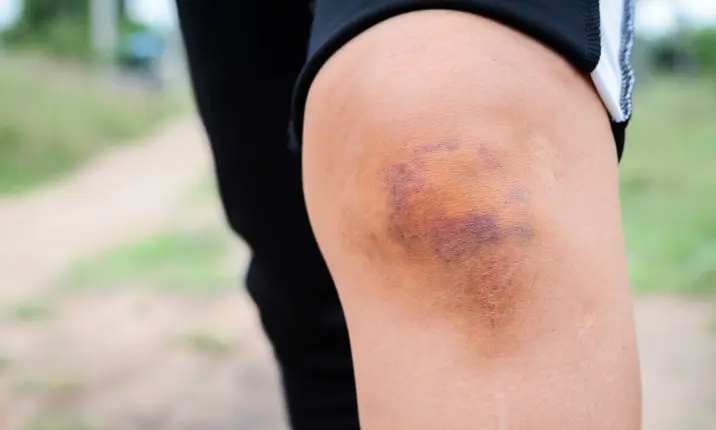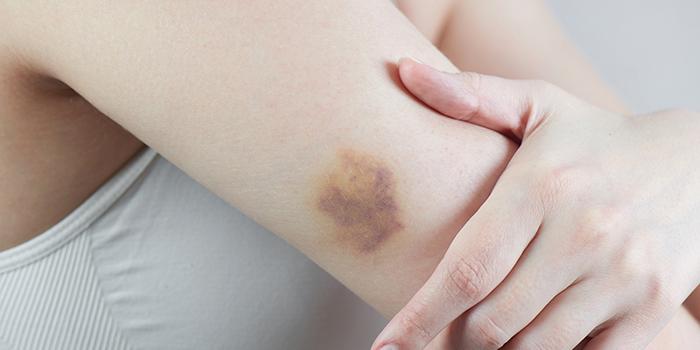Have you ever noticed bruises on your body that seem to appear without a clear cause? While occasional bruising is common and often harmless, frequent or unexplained bruises may be a signal that something more is going on beneath the surface.
According to medical experts at the Mayo Clinic and Cleveland Clinic, bruising occurs when small blood vessels (capillaries) under the skin break, usually due to impact. This causes blood to leak into the surrounding tissue, leading to a black, blue, or purple mark. Over time, the body reabsorbs the blood, and the bruise fades.
However, when bruising occurs regularly or with minimal trauma, it may indicate an underlying health issue, a side effect of medication, or a nutritional deficiency.
Common Causes of Easy Bruising
Let’s explore some medically recognized reasons why a person may bruise easily:
1. Age-Related Skin Changes
As we age, skin becomes thinner and loses protective fat. This makes blood vessels more susceptible to injury, even from light bumps.
- Source: Mayo Clinic – Bruise Causes
- Older adults may notice bruises appearing more often on the arms and legs.
2. Vitamin Deficiencies
Certain vitamins are essential for blood clotting and vessel strength. A deficiency in these nutrients can lead to increased bruising:
- Vitamin C: Important for collagen production, which supports blood vessels.
- Vitamin K: Vital for blood clotting.
- Vitamin D: May play a supportive role in vascular health.
A deficiency can result from poor diet, absorption issues, or medical conditions such as celiac disease or chronic liver disease.
- Source: National Institutes of Health – Vitamin Fact Sheets
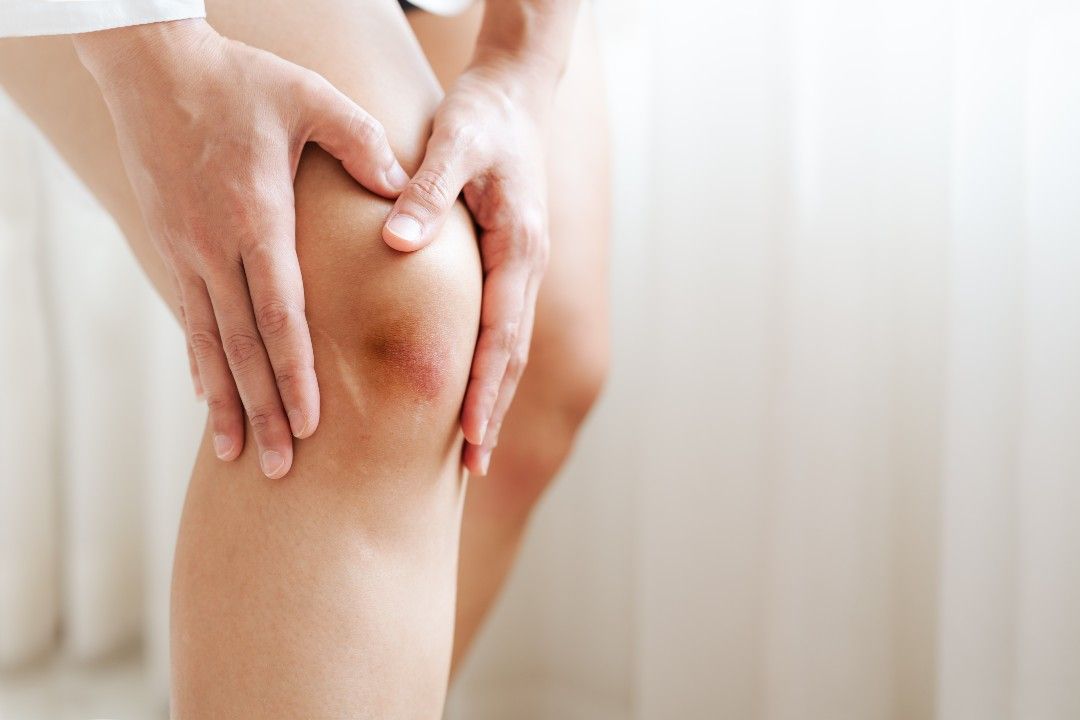
3. Medications and Supplements
Many people are unaware that common medications and herbal supplements may affect how easily they bruise. These include:
- Anticoagulants (blood thinners) like warfarin and heparin
- Antiplatelet drugs like aspirin and clopidogrel
- Non-steroidal anti-inflammatory drugs (NSAIDs) like ibuprofen and naproxen
- Supplements such as:
- Fish oil (omega-3)
- Vitamin E
- Ginkgo biloba
- Ginseng
These substances may inhibit blood clotting or affect platelet function, thereby increasing the risk of bruising.
- Source: Cleveland Clinic – Causes of Easy Bruising
Note: Always consult your healthcare provider before stopping or starting any medications or supplements.
4. Medical Conditions Affecting Blood Clotting
Bruising that occurs easily or frequently may be a sign of a more serious condition involving the blood, liver, or immune system, such as:
- Platelet disorders (e.g., thrombocytopenia)
- Hemophilia
- Leukemia
- Chronic liver disease (which affects clotting factors)
- Vasculitis (inflammation of blood vessels)
- Source: Centers for Disease Control and Prevention – Blood Disorders

5. Diabetes and Bruising
Individuals with diabetes may experience skin complications, including slow wound healing and easier bruising, particularly if blood sugar is not well controlled.
Diabetic complications can impair circulation and capillary strength, making the skin more fragile.
- Source: American Diabetes Association
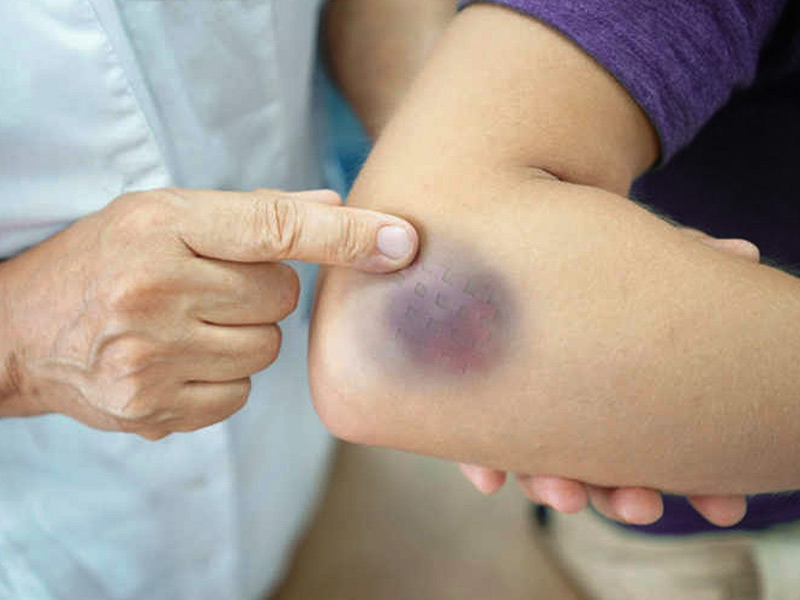
6. Sun-Damaged or Thin Skin
Prolonged sun exposure can break down collagen and elastin in the skin, weakening its protective barrier. This increases the likelihood of visible bruising, especially in fair-skinned individuals.
- Source: American Academy of Dermatology
When to See a Doctor
While most bruises are not cause for concern and heal on their own, certain signs should prompt a medical evaluation:
- Bruises that appear without any known injury
- Large, painful, or frequent bruises
- Bruising with bleeding elsewhere, such as gums or nose
- Bruises that don’t heal or get worse over time
- Accompanied by symptoms like fatigue, fever, or weight loss
- Source: NHS – Bruising
Early diagnosis can lead to effective treatment. If you experience persistent or unusual bruising, speak with a healthcare professional for a proper evaluation.
Preventive Measures for Bruising
If you’re prone to bruising, there are steps you can take to help reduce the risk and protect your skin:
- Maintain a nutrient-rich diet, including vitamin C, K, and iron.
- Use protective gear when engaging in sports or physical activity.
- Monitor medications and supplements with your doctor.
- Moisturize regularly to keep skin supple and healthy.
- Protect skin from sun damage with appropriate clothing and SPF sunscreen.
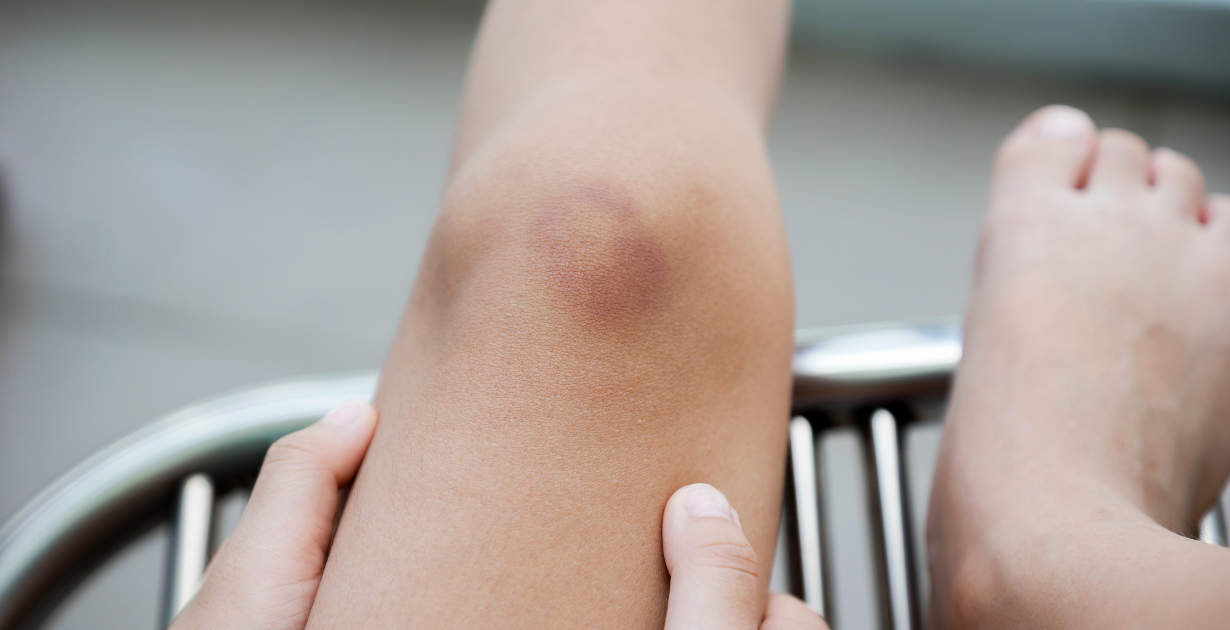
Summary: Stay Informed and Proactive
Bruises are a normal part of life, especially with age or minor injuries. But when they appear often, or without explanation, they can be early indicators of underlying health issues.
Thanks to growing awareness and access to reputable information, individuals can now better understand the causes of easy bruising and take proactive steps. Consulting with a doctor ensures peace of mind and appropriate treatment if necessary.
Cited and Verified Sources:
- Mayo Clinic – Bruise Causes
- Cleveland Clinic – Why Am I Bruising So Easily?
- National Institutes of Health – Vitamins & Minerals Fact Sheets
- Centers for Disease Control and Prevention – Blood Disorders
- American Diabetes Association
- American Academy of Dermatology
- NHS UK – Bruises

